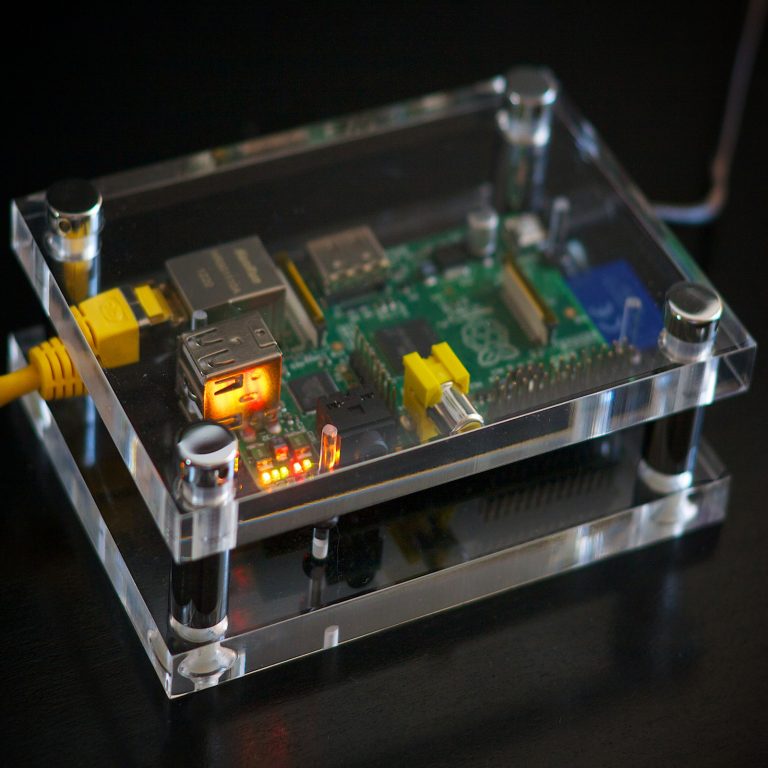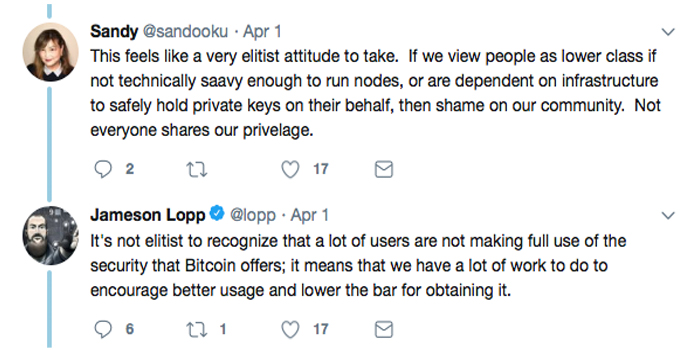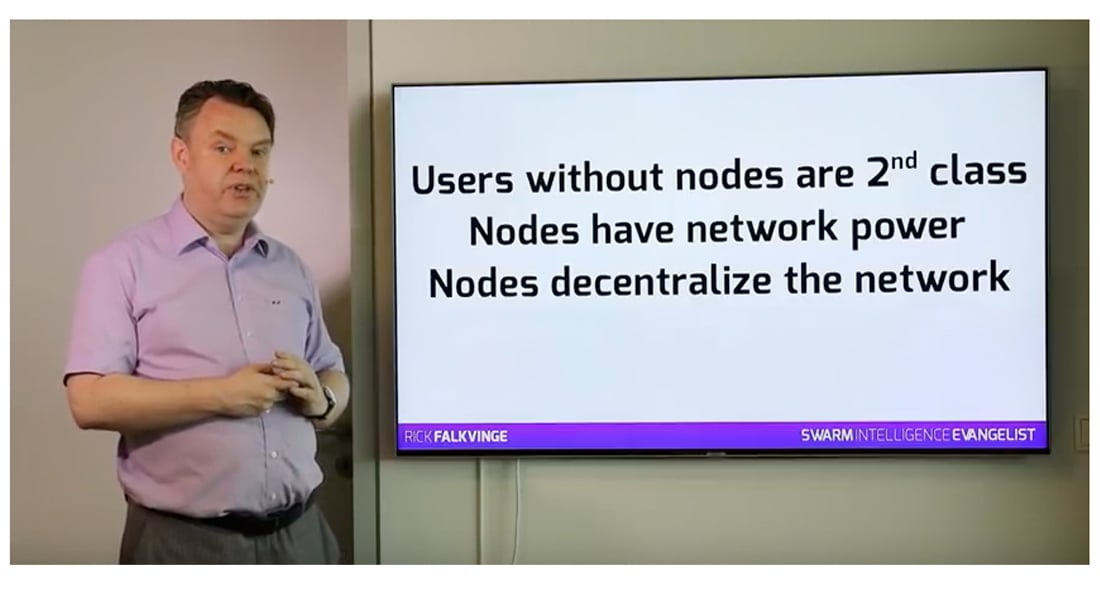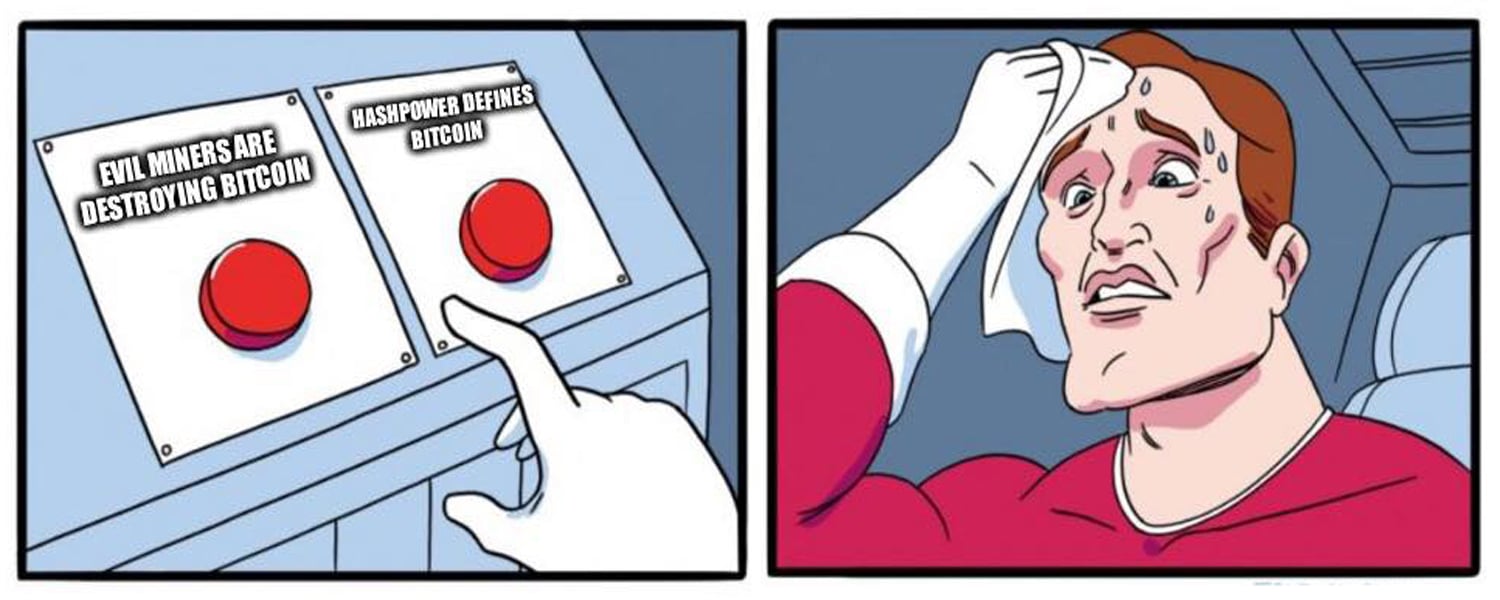Latest news about Bitcoin and all cryptocurrencies. Your daily crypto news habit.

Over the past few months, there has been an ongoing theoretical and ideological debate concerning the difference between mining nodes and non-mining nodes, and whether or not one set of nodes is more important than the other. The ongoing argument between BCH proponents and BTC supporters often leads to the node debate as to which group of nodes is stronger. The dispute has even led some BTC luminaries to state that users who don’t run a fully validating node are merely ‘second-class citizens’ in the land of cryptocurrency.
Also read: The Exahash Era: SHA-256 Mining is a Significant Achievement in Computer Engineering
The Ongoing Debate Over the Importance of Non-Mining Nodes
Nodes. A lot of people from within the BTC and BCH camps are talking about cryptocurrency enthusiasts who swear by the importance of non-mining nodes and the discussion has leaked into other digital asset communities as well. Non-mining nodes are basically a complete record of the blockchain and some people also believe non-mining nodes enforce a cryptocurrency’s protocol rules, while others believe these groups are mere spectators.
Mining nodes are also considered nodes but they possess the ability to process blocks and mint new coins. Just today on the Reddit forum r/bitcoin, users argued about the fundamental difference between mining nodes and non-mining nodes. The debate showed the glaring difference of opinion between both sides of this argument.
“Nodes do play a very important part to the system — They enforce the rules. Each person who runs a node has a ruleset they wish to follow — If enough nodes all agree to these rules they come to a consensus,” explains one commenter on the Reddit post.
If a miner or a pool decides to break these rules of consensus within 100 blocks they will lose the mining reward. Nodes can also ban other nodes for not following the consensus too.
Nodes Do Nothing But Decide for Themselves Whether the Rules Are Observed
However, immediately after the person’s comment, another user disagreed with the statement.
“Can an ASICs mine or generate blocks without a node?” asked the user who disagrees that non-mining nodes actually enforce rules. “No! Can a non-mining-node generate blocks? No! Who writes the chain further, if not the mining nodes? Certainly not the non-mining node — Which power decides which blocks are valid? Which power builds the other valid blocks?” the commenter continues, asking:
The nodes do nothing but decide for themselves whether the rules are observed. If they are not met, they split off from the network and wait for valid blocks that will never come because there are no miners to generate the blocks. Or you have a mining node, then you try to generate the next valid block by yourself. Pool nodes are of course very important, but they have mining power behind them — Your raspberry pi doesn’t have any power at all.
‘Second-Class Bitcoin Citizens’
The conversation got interesting about a month ago when BTC developer Jameson Lopp tweeted a controversial statement about fully validating non-mining nodes.
“If you don’t run a fully validating node, you’re a second-class Bitcoin citizen. If you don’t hold your own private keys, you’re a third class Bitcoin citizen,” Lopp stated on March 31, 2018.
 Jameson Lopp defending the ‘second-class Bitcoin citizen’ position on Twitter.
Jameson Lopp defending the ‘second-class Bitcoin citizen’ position on Twitter.
The tweet didn’t go over so well as it sparked a vitriolic debate about the perceived importance of non-mining nodes. One Twitter user responded to Lopp’s tweet, writing “Why bring the bs hierarchical social scale to Bitcoin? This has to be one of the most pretentious statements I’ve heard in the Bitcoin community.” But Lopp answered back by saying:
It’s not so much about social scale as it is about self-sovereignty.
Three Powerful Misconceptions That Bolster Non-Mining Node Nonsense
On April 29, 2018, on the We Are All Satoshi network hosted by the founder of the Pirate Party, Rick Falkvinge, the host debunked the concept that cryptocurrency investors who don’t run fully validating nodes are second class, and called the statement “nonsense.” In fact, Falkvinge explained that non-mining nodes are merely “direct spectators” who can only watch the rules, not enforce them. Falkvinge says nodes that are originally described in Satoshi Nakamoto’s white paper were “mining nodes.” The Pirate Party founder says that people who promote the belief that non-mining nodes are rule enforcers are being nonsensical and usually bolster “three powerful misconceptions — users without nodes are second class, nodes have network power, and nodes decentralize the network.
 Rick Falkvinge discusses the three powerful misconceptions involved with the non-mining node discussions.
Rick Falkvinge discusses the three powerful misconceptions involved with the non-mining node discussions.
“Users without nodes are second-class citizens — No they are not, 99.999 percent of users will not be running nodes and in fact, that’s completely fine, and required for mass scale adoption,” Falkvinge explains in his video ‘Rick Reacts: The Nonsense about Bitcoin Nodes’ video. “Nodes have network power — No that’s nonsense they don’t. The network will proceed regardless of the presence or nonpresence of certain non-mining nodes — They have no influence whatsoever.”
Nodes decentralize the network — Well yes if your talking about Bangladesh goat farmers capable of renting a server, capable of gigabyte sized blocks, then you might get some decentralization. But this is used as a battering ram for hammering home the point somebody must be able to run a full node on a shitty Comcast connection — which is just atrocious — these three statements are all false narratives.
The non-mining node debate has become a very contentious conversation among cryptocurrency advocates and the argument is discussed regularly on forums and social media these days. The non-mining node discussion is now at the heart of the ongoing scaling debate that seems to never end.
What do you think about the debate regarding non-mining nodes? Do you think non-mining nodes are important? Let us know your thoughts on this subject in the comments below.
Images via Pixabay, Shutterstock, Youtube, and Twitter.
Disclaimer
The views and opinions expressed in this article are solely those of the authors and do not reflect the views of Bitcoin Insider. Every investment and trading move involves risk - this is especially true for cryptocurrencies given their volatility. We strongly advise our readers to conduct their own research when making a decision.
